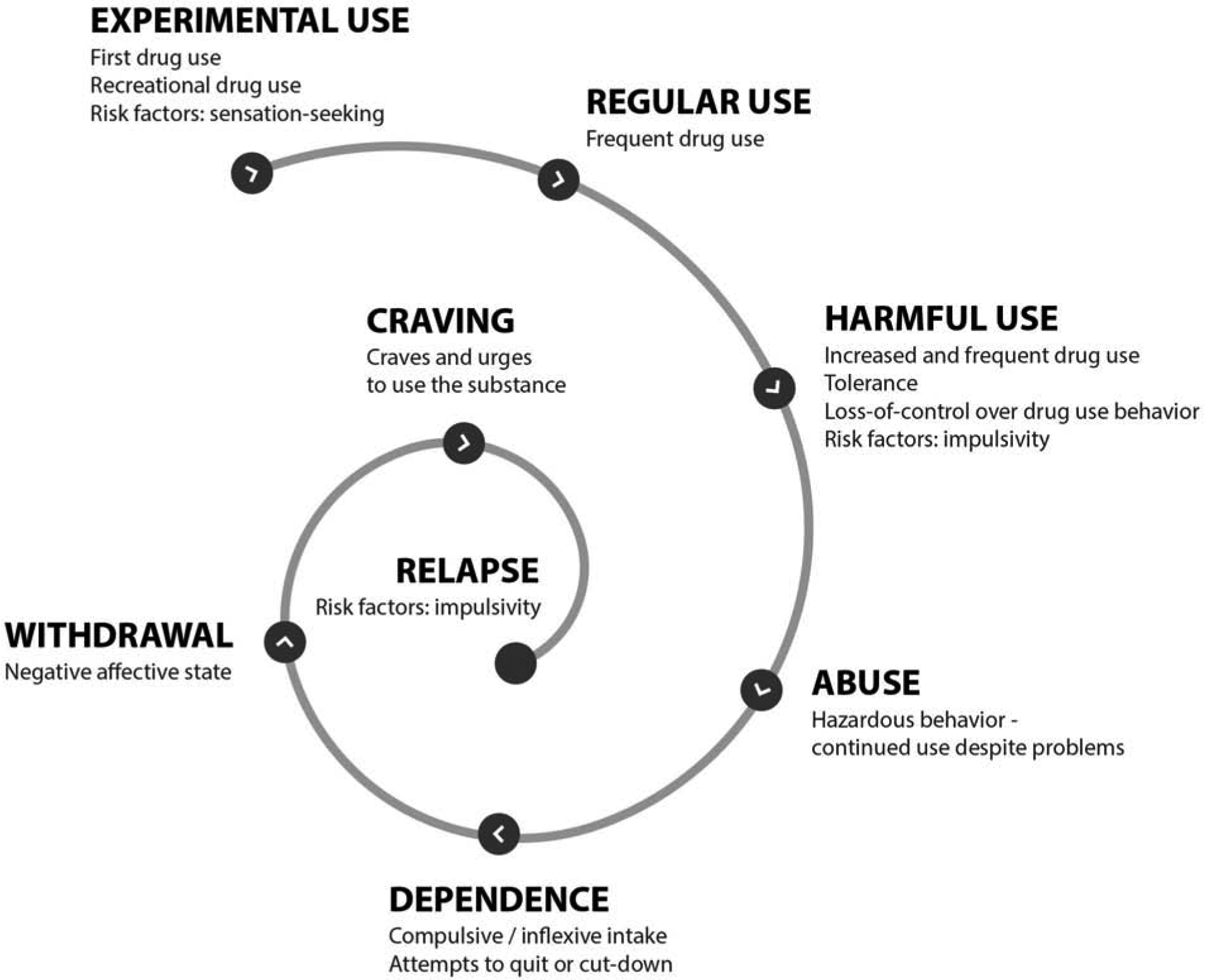Figure 1.

The downward spiral of alcohol use disorders. There is an initial prodromal stage during which certain individuals may be at increased risk to be exposed to alcohol. Personality traits such as sensation seeking are thought to promote alcohol experimentation, and transition to a more regular use of alcohol. As alcohol use patterns become more frequent, and tolerance develops, individuals are more likely to loss control over alcohol drinking behavior; risk factors, such as impulsivity, are considered to promote the transition to a more harmful use of alcohol. Alcohol intake may then become inflexible and compulsive, leading to hazardous or continuous alcohol use despite the negative physical and psychological consequences, and ultimately stagnating into dependence. Attempts to quit or cut-down may become apparent; these may be followed by an aversive negative affective state, or withdrawal, thereby increasing the urges to use alcohol, precipitating relapse, and thus perpetuating the spiral of alcohol use disorders.
